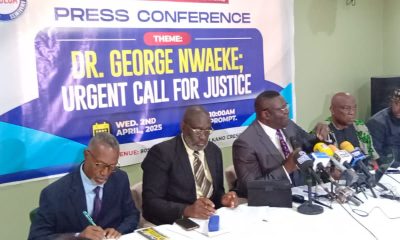News
Rivers crisis: Coalition of 92 CSOs send SOS to FG to save democracy in Nig+Video
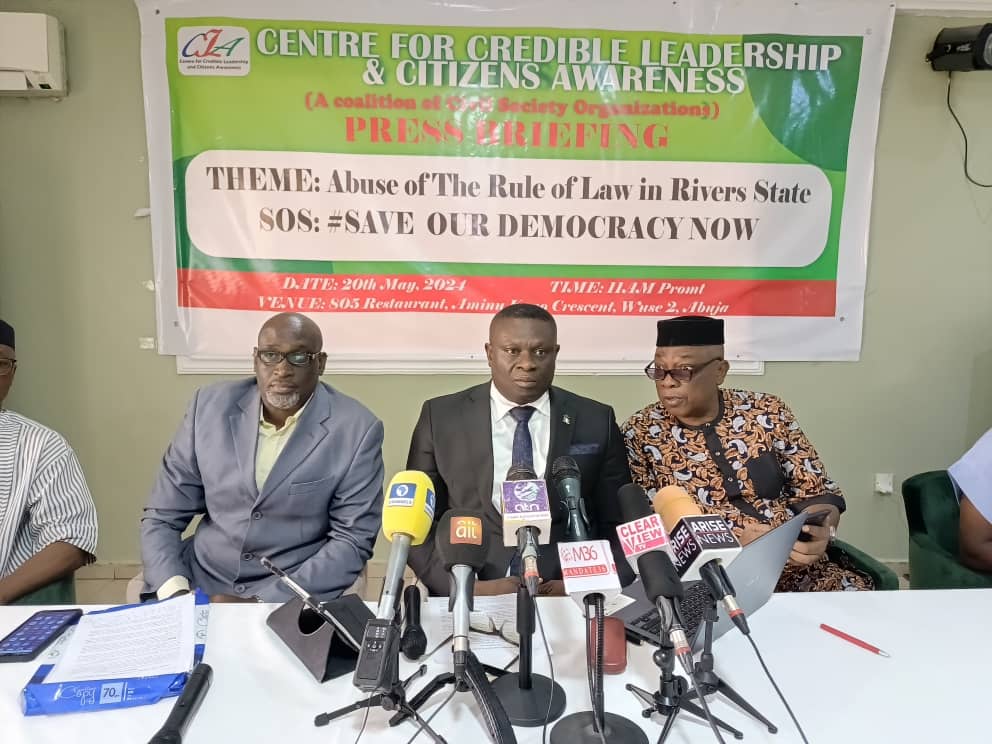
…ask NJC to beam its searchlight on Justice Wali’s activities
A coalition of 92 Civil Society Organisations, CSOs under the platform of Centre for Credible Leadership and Citizens Awareness, CCLCA, have sent an SOS to the Federal Government to save democracy in Nigeria.
They also called on the National Judicial Commission, NJC to immediately beam its searchlight Justice Charles Wali of Rivers State High Court for issuing a controversial expiate motion despite a subsisting order of a federal High Court.
Director General of CCLCA, Dr Gabriel Nwambu made this disclosure at a press briefing in Abuja on Monday.
The coalition further stressed that if the situation is not quickly addressed by the NJC it will go to Court to seek redress.
Dr Nwambu said the Centre for Credible Leadership and Citizens Awareness as a coalition of civil rights organization committed to good governance, upholding the principles of justice and the rule of law as the watchdog of the society has been watching with keen interest the latest unfolding events in Rivers State,Nigeria which by the mildest possible term is not synonymous to true democracy and democratic principles in line with global best practice. The rift between the Executive and the Legislative arms of Government and the actions of the chief executive officer in Rivers State which is akin to anarchy is becoming worrisome.
“Firstly, Hon. Justice J.K. Omotosho of the Federal High Court, Abuja gave a judgement stating that the Assembly led by Rt. Hon. Martins Amaewhule is recognized by law and certified by the court.
In order 4 given by J.K. Omotosho that the 11th defendant which is the Governor of Rivers State in suit FHC/ABJ/CS/1613/2023 between the Rivers State House of Assembly and Rt. Hon. Amaewhule and others states that the 11th defendant is prohibited from making any request, presentation of nomination to any other house of Assembly other than that led by Rt. Hon. Martins Amaewhule. That judgement is subsisting.
” That judgement has not been set aside.
In another suit pending before the FCT High Court in suit FHC/ABJ/CS/1681/2024 before Hon. Justice Okoro before the Rivers State House of Assembly and INEC concerning the defection of the 27 Assembly members, the court gave an injunction restraining the INEC and the defendants from declaring the seats vacant and from proceeding to conduct elections to fill any vacancy. The first judgement made by Hon. Justice J.K. Omotosho is still subsisting and has not been set aside, the second order made by Justice Okoro has not been vacated.
“Now, the order made by Justice C.N. Wali of the Rivers State High Court recognizing the 3 law makers contradicts clearly the provisions of section 272(3) of the Constitution of the Federal Republic of Nigeria as Amended which states that a State High Court has no jurisdiction to entertain matters bothering on the tenure of the State Assembly. This means that the Rivers State High Court also lack jurisdiction to make an order.
” In other words, the order made by Justice C.N. Wali amounts to Forum Shopping, Abuse of Court Process and tantamount to self help.
” Consequently, as a coalition of Civil Rights Organizations, we can not allow such threat to our hard earned democracy to thrive in Nigeria where we operate a constitution, where the rule of law should be practiced to the letter.
“Ladies and gentlemen, we are talking about a purported assembly where 3 persons parade themselves as law makers for an entire state contradicting clearly the provisions of section 96(1) as amendment which defines one-third (1/3) as what constitutes a quorum. If for any reason the assembly can not form a quorum, the assembly shall adjourn. It is never the intendment of those who crafted the 1999 Constitution that only 3 lawmakers shall be enacting laws for the people.
“Again, the chief executive of Rivers State relocated the Legislative Arm of Government, an institution of government, to commence sitting inside the Government House. This singular act is not consistent with the principle of Separation of Power, a complete abberation, desecration and denigration of our Constitution.
“Again, the purported screening of a Senior Advocate of Nigeria, Dagogo Iboroma, before an illegitimate House of Assembly is an affront to the integrity of our legal system and a contemptuous act towards court judgments. The Federal High Court, in Suit No FHC/ABJ/CS/1613/2023, clearly ruled that only the Amaewhule-led Assembly of 27 members can determine who their clerk is. We urge Dagogo Iboroma, SAN, and all leaders of the Bar to uphold the sanctity of the law and refrain from participating in actions that undermine the Constitution and the authority of the Federal courts.
“Despite the unambiguous provision of Section 272(3) of the constitution of the Federal Republic of Nigeria as amended without vacating a subsisting Order has gone ahead perpetrating illegality and contempt of court.
“Furthermore, we deplore Governor Sim Fubara’s intention to probe the immediate past administration.
“The Governor should also be reminded that the immediate past administration was where him served as Accountant General of Rivers State. The fact that he is calling for a probe of an administration for which he served as the chief accounting officer of the state already speaks volumes on his real intention for the said probe.
“Such actions already depicts a colouration of a hidden political motives in the enquiry and therefore has voided every outcome or report of such panel of enquiry.
“Moreover, Governor Fubara’s alleged plan to demolish the State House of Assembly is an assault on democracy and an attempt to silence opposition voices in Rivers state. The democratic process thrives on the existence of independent legislative bodies, and any attempts to undermine their autonomy should be condemned in the strongest possible term.
“Lastly, we are deeply concerned about reports suggesting that the chief executive is spending Rivers State funds outside the realm of appropriation. A replication of corruption, abuse of power and due process. This act contravenes the principles of fiscal responsibility and accountability. Public funds should be managed prudently and in accordance with the law.
“We urge the appropriate authorities to investigate these allegations thoroughly and take appropriate actions to safeguard the interests of the citizens.
“As a Coalition of Civil Rights Organizations, we firmly stand against these illegal activities and actions of Chief Executive of Rivers State. We call on all citizens, civil society organizations, and leaders of the Bar and the Bench to join us in defending the rule of law, upholding democratic tenets and principles, and safeguarding our constitutionally guaranteed rights.
“We will take all necessary steps to oppose these desecrations of our courts and the noble profession of law. “Together, we can ensure that justice prevails and the rights of the people in Rivers State are protected.
News
Banditry:” I was chained for 32days while in their den, killed my wife as I watch-Nat’l Assembly DD narrates experience
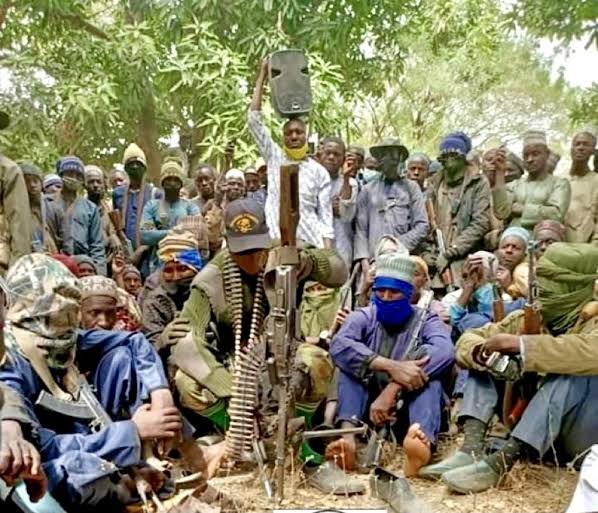
A Deputy Director at the National Assembly Commission, Michael Adesiyan, has narrated his near-death experience in the hideout of bandits.
Adesiyan was abducted from his Chikakore residence in Kubwa, a suburb in the nation’s capital, alongside his wife on January 26th, 2025 before he was rescued on April 7.
The civil servant narrated his ordeal to journalists at National Counter-Terrorism Centre, Abuja, when fresh 60 kidnapped victims, who were rescued by the security forces were presented to the National Security Adviser, Nuhu Ribadu.
Adesiyan called on the federal government to immediately look for a way to disarm the criminals and educate them, and possibly reintegrate them back to the society, adding that “the bandits don’t know what they are doing.”
According to him, his abductors were between the ages of 17 and 20, and they were stark illiterate people who were not aware of what they were doing, and could not even count N1 million let alone hundreds of millions they were asking as ransom.
He specifically said they were chained for 32 days he spent in the abductors’ den, adding that they killed his wife in his presence.
“I want to thank the government for rescuing us. I was chained for 32 days. I want to advise that the government should find away to disarm or arrest them (bandits), instead of confronting them.
“They can send them to school. Some cannot even count one million. They are stark illiterates. They are young people of ages 17 and 21. They don’t know what they are doing.
“So if they can bring them out, if they want to learn work (apprenticeship), they can let them do, retrain them, reorientate them, that they can be useful to themselves.
“My advice is to, instead of killing them, arrest them, reorientate them. If you want to educate them, they can then work. That’s my advice,” he said.
When asked why they were in a rush to tell their family members to pay ransom, he said, “When they kill someone in your presence, you would give them anything they want.
“For instance, they killed my wife in my presence. If they request your head in that situation, you will give it to them.”
Earlier, while giving a breakdown, the Coordinator, National Counter-Terrorism Centre, Maj. Gen Adamu Laka said the victims comprising 35 males and 25 females, were rescued on Monday April 7, by troops of 1 Division of the Nigerian Army, in a coordinated operation supported by other security and intelligence agencies.
News
US revokes more than 500 foreign student visas
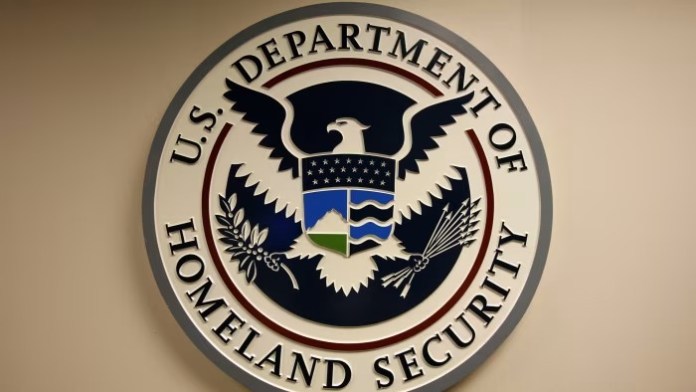
No fewer than 500 foreign students have had their US visas revoked in recent weeks, as Donald Trump’s administration doubles down on its crackdown on universities.
Nafsa, a network of universities and individuals engaged in international education and exchanges, told the Financial Times on Tuesday it had identified 500 visa revocations by compiling reports from higher education institutions across the US.
“This is uncharted territory on so many levels,” Fanta Aw, chief executive of Nafsa said. “It’s at an unprecedented level and it’s quite concerning because there is a lack of clarity which is creating anxiety.”
The Department of Homeland Security and the Department of State are implementing a wave of actions against university students across the country. Institutions are often unaware that their students have been targeted so cannot easily track their cases or offer support.
The state department’s visa revocations require students to leave the US and reapply for visas after fresh scrutiny. Separately, the homeland security department has triggered “status termination”, Aw said. In both cases, she added, the processes for appeal were unclear.
“There will be a tsunami of legal cases coming,” she warned.
Multiple reports have arisen of foreign students and university employees being taken to detention centres and subsequently facing deportation.
A number of universities have issued warnings to students and faculty against travelling abroad for fear of arbitrary questioning or detention on returning to the US.
Aw said reports of visa revocations had spiralled from students at elite universities — including Stanford, Harvard and Columbia — to a far wider range of higher education institutions across the country. They targeted many different nationalities for a variety of reasons, including for traffic violations.
Since Trump’s election, a growing number of US-based faculty have sought jobs elsewhere, and increasing numbers of high school and college students are applying to universities abroad.
The Central European University in Vienna on Tuesday said US applicants for its programmes in the upcoming academic year had jumped one-quarter, while the University of Toronto reported a “meaningful” rise compared to past years.
On Monday, 16 associations of US universities called for a briefing from the homeland security and state departments, after uncoordinated orders from the authorities requested students to “self-deport”.
The group said the orders contained “no additional information about how to appeal this decision or verification to ensure that mistakes are not being made in identifying these individuals”.
The association warned of the implications for the country given the 1mn international students attending US colleges and universities, who contributed an estimated $43.8bn to the economy, created 375,000 domestic jobs and contributed “to institutions’ intellectual vibrancy and the global literacy of domestic students”.
The homeland security department did not reply to a request to comment.
News
Japa: Nigeria loses $366m as 16,000 doctors move abroad
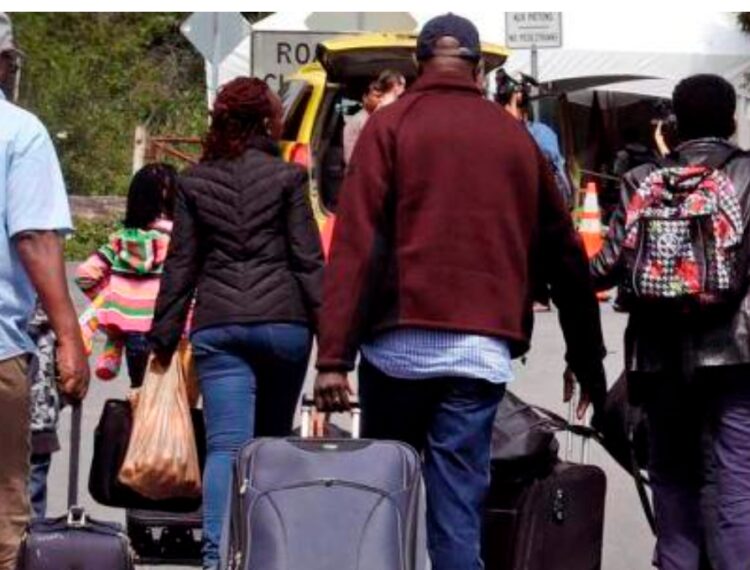
The Coordinating Minister of Health and Social Welfare, Prof Muhammad Pate said over 16,000 Nigerian doctors have left the country in the last five to seven years to seek greener pastures in other countries.
Prof Pate also said the doctor-to-population ratio is now 3.9 per 10,000 in the country, while the estimated cost of training one doctor exceeds $21,000.
This was as he lamented that nurses and midwives who left have also thinned the number of healthcare workers in the country.
The minister disclosed this at the seventh annual capacity building workshop of the Association of Medical Councils of Africa in Abuja on Tuesday with the theme, “Integrated healthcare regulation and leadership in building resilient health systems.”
According to him, an increasing number of Nigeria’s talented healthcare professionals aspire to work in other countries, driven by factors such as economic opportunity, better working conditions, more advanced training, and superior research environments abroad.
He said the migration of health professionals from developing countries is not new, but it has accelerated in recent years.
“In Nigeria alone, over 16,000 doctors are estimated to have left the country in the last five to seven years, with thousands more leaving in just the past few years. Nurses and midwives have also thinned in numbers. The doctor-to-population ratio now stands at around 3.9 per 10,000—well below the suggested global minimum.
“But this trend is not just about people leaving. It represents a fiscal loss.
The estimated cost of training one doctor exceeds $21,000—a figure that reflects the magnitude of public financing walking out of our countries. It deeply affects our health systems—leaving many of our rural communities critically underserved.”
He, however, emphasised that the phenomenon offers an opportunity to rethink and reshape the policies, to manage the valuable health workforce in ways that benefit our countries first and foremost.
“In Nigeria, guided by the vision of President Bola Ahmed Tinubu, who was appointed by African Heads of State as the AU’s Continental Champion for Human Resources for Health and Community Health Delivery—we are pursuing a new direction. His vision is that Nigeria becomes a prosperous, people-oriented country, contributing to a peaceful and thriving continent. Not a standalone Nigeria, but a Nigeria that is interlinked with all our neighbours and sister countries. Under the Renewed Hope Agenda, and within the framework of the Nigeria Health Sector Renewal Investment Initiative, we have embraced a new path—combining strategic realism with visionary ambition.
“The National Policy on Health Workforce Migration is a cornerstone of this path. It is designed to address health workforce migration with dignity—dignity for health workers, for the country, and for the profession. It is data-driven, evidence-guided, and signals a clear direction. This is not a restrictive policy, nor is it one born out of resignation. We understand that the global health workforce shortage is at 18 million, and countries in the Global North face their own human resource crises due to demography and other factors. But our response is based on stewardship—balancing the rights of health professionals to seek opportunities abroad with our duty to protect the integrity and viability of our national health system.
“The objectives are clear. To retain and motivate health workers currently serving in Nigeria—thousands of whom work under difficult conditions; to establish ethical norms and explore bilateral frameworks for recruitment, aiming to correct global asymmetries; to expand training capacity—not only for domestic needs, but to contribute to global workforce needs, to enable structured reintegration for the thousands of Nigerian professionals abroad; and to strengthen governance, improve regulatory coordination, and build real-time data systems.”
He urged Africa to lead in forging a new global compact on health workforce mobility—anchored in pan-African training and accreditation standards; shared planning tools, evidence, and data; continental negotiating platforms with destination countries; and sustained investments in the people who care for our people.
The President of AMCOA, Prof Joel Okullo, stressed the importance of collaboration among African countries to tackle healthcare challenges and improve regulation and leadership across the continent.
He expressed the belief that the outcome of the workshop would produce actionable strategies to improve healthcare services across Africa.
“This year’s theme highlights our commitment to tackling the diverse array of challenges within the health regulatory landscape. It seeks to empower AMCOA members and associate members with the wisdom and skills needed for informed strategic and operational decisions in the coming year.
“In this intricate regulatory tapestry, our discussions will illuminate strategies and insights that will bolster regulators’ capabilities. Our focus will revolve around managing health workforce mobility, improving credentialing and information data management systems
“Let us embark on this journey with enthusiasm and a shared sense of purpose. Our collaborative efforts today and over the next few days will lay the groundwork for transformative changes that will resonate across the healthcare landscape of Africa,” he noted.
The Registrar of the Medical and Dental Council of Nigeria, Dr Fatima Kyari, while welcoming participants to the event, noted that it was Nigeria’s first AMCOA workshop while commending the alignment of leadership towards the shared goal of patient safety.
The Board Chairperson of MDCN, Prof Afolabi Lesi highlighted the need for healthcare regulators to uphold global standards while adapting to local contexts.
Lesi, who is also the Chairman of the Local Organizing Committee for the workshop addressed the challenges of fragmented professional relationships that hinder implementation and compromise patient care.
“The reality is that while we have committed and clear directions at the level of governance, implementation of actions is bedeviled by the fractioned and fractious relationship among health workers who ought to be working as a team, with the patient (well-being and safety) as the primary focus of all our actions,” he said.
Photo caption: Members of AMCOA; the Registrar of MDCN, Dr Fatima Kyari; the Board Chairperson of MDCN, Prof Afolabi Lesi; the Coordinating Minister of Health and Social Welfare, Prof Muhammad Pate; the Minister of State of Humanitarian Affairs and Poverty Reduction, Dr Yusuf Sununu; and other AMCOA members.
-

 News19 hours ago
News19 hours agoOERAF held memorial lecture on conflict resolution, security/safety of community in Nigeria
-

 News5 hours ago
News5 hours agoUS revokes more than 500 foreign student visas
-

 News7 hours ago
News7 hours agoIbas picks administrators for 23 Rivers LGs(SEE list)
-

 News11 hours ago
News11 hours agoBandits have seized control of 64 communities in Plateau – Gov Muftwang
-

 News19 hours ago
News19 hours agoHoR Minority Caucus decries killings in Plateau, Benue states, urges immediate presidential decisive actions
-

 Economy11 hours ago
Economy11 hours agoMobile Money transactions hit $1.68trn in one year
-

 News11 hours ago
News11 hours agoAir Peace unveils new process for boarding passengers
-

 Metro6 hours ago
Metro6 hours agoINSECURITY! Gunmen Attack Abuja-Bound GUO Bus, Passengers Injured


